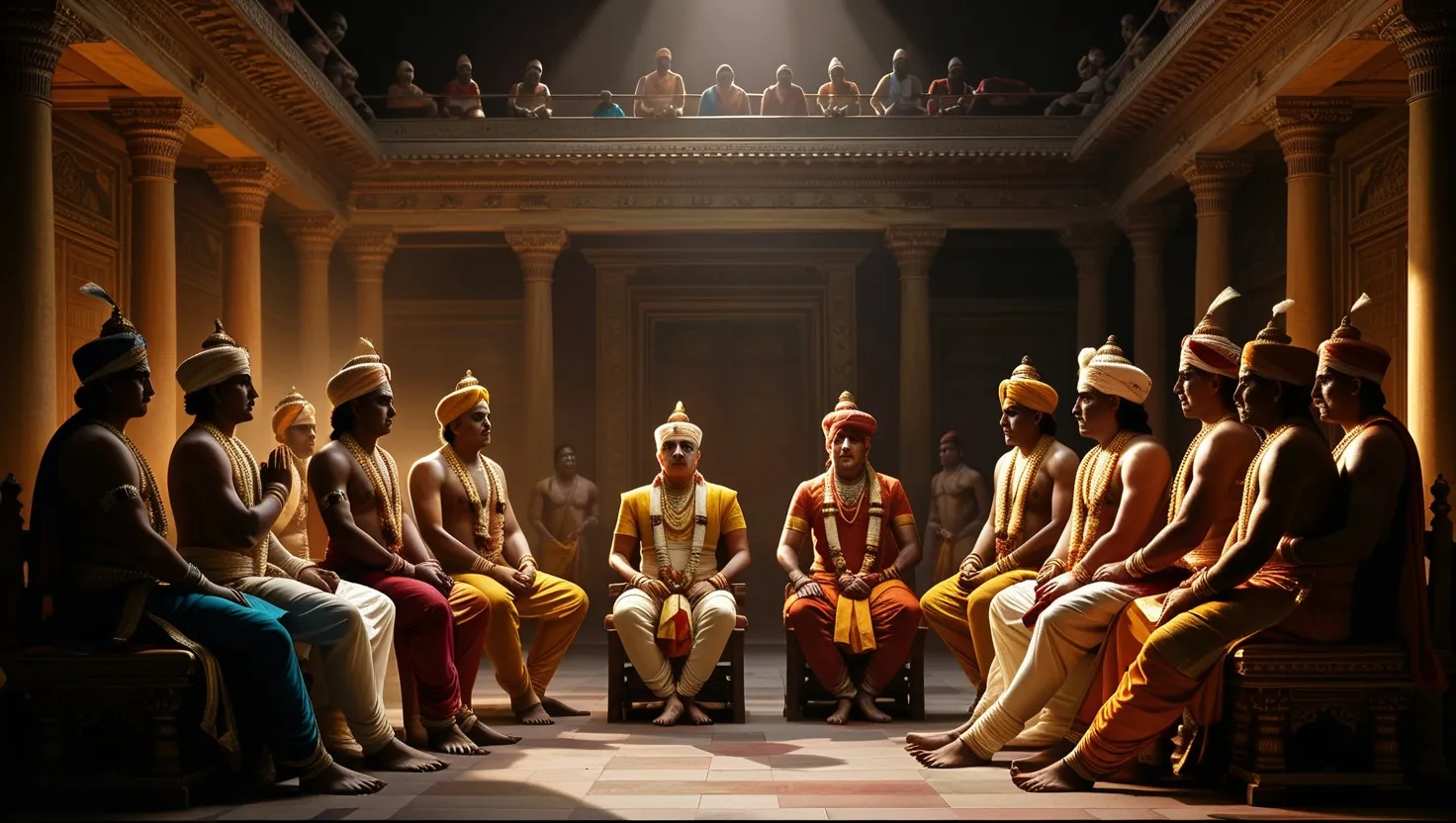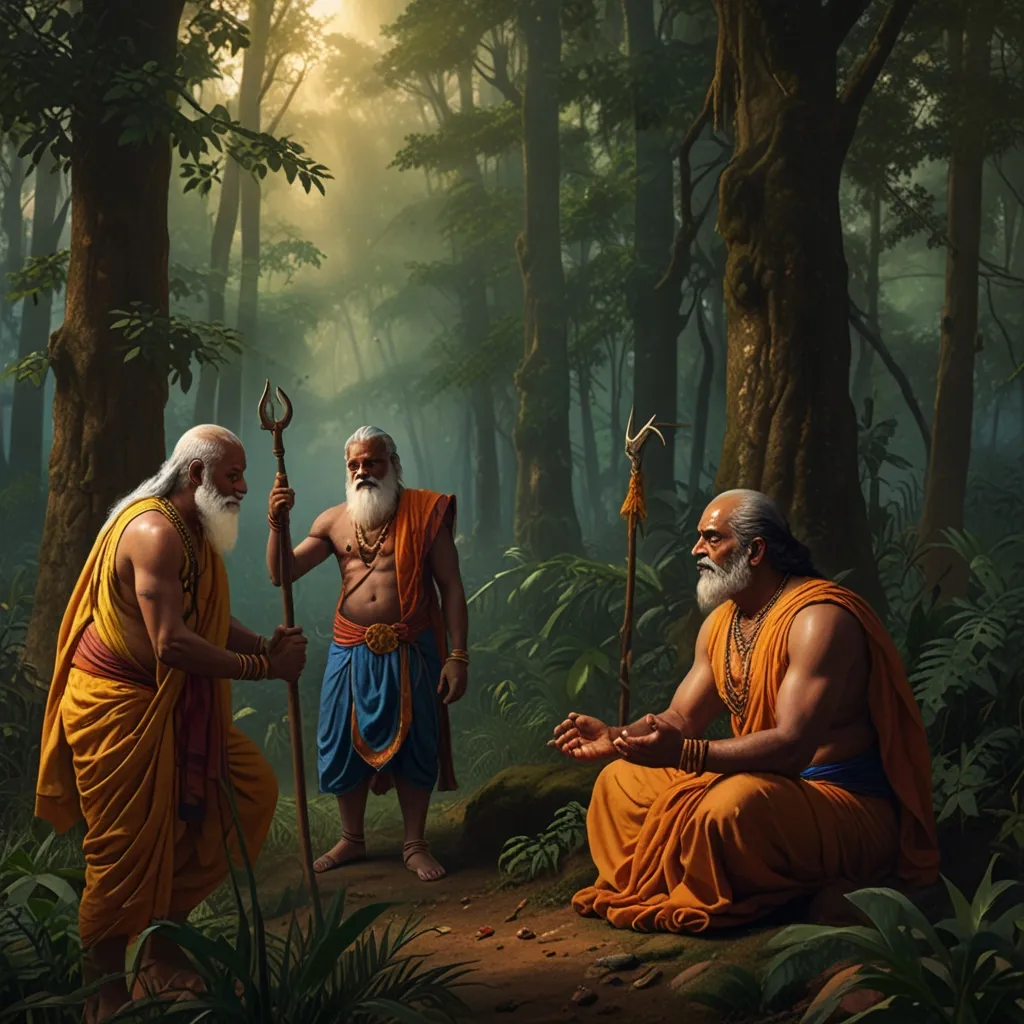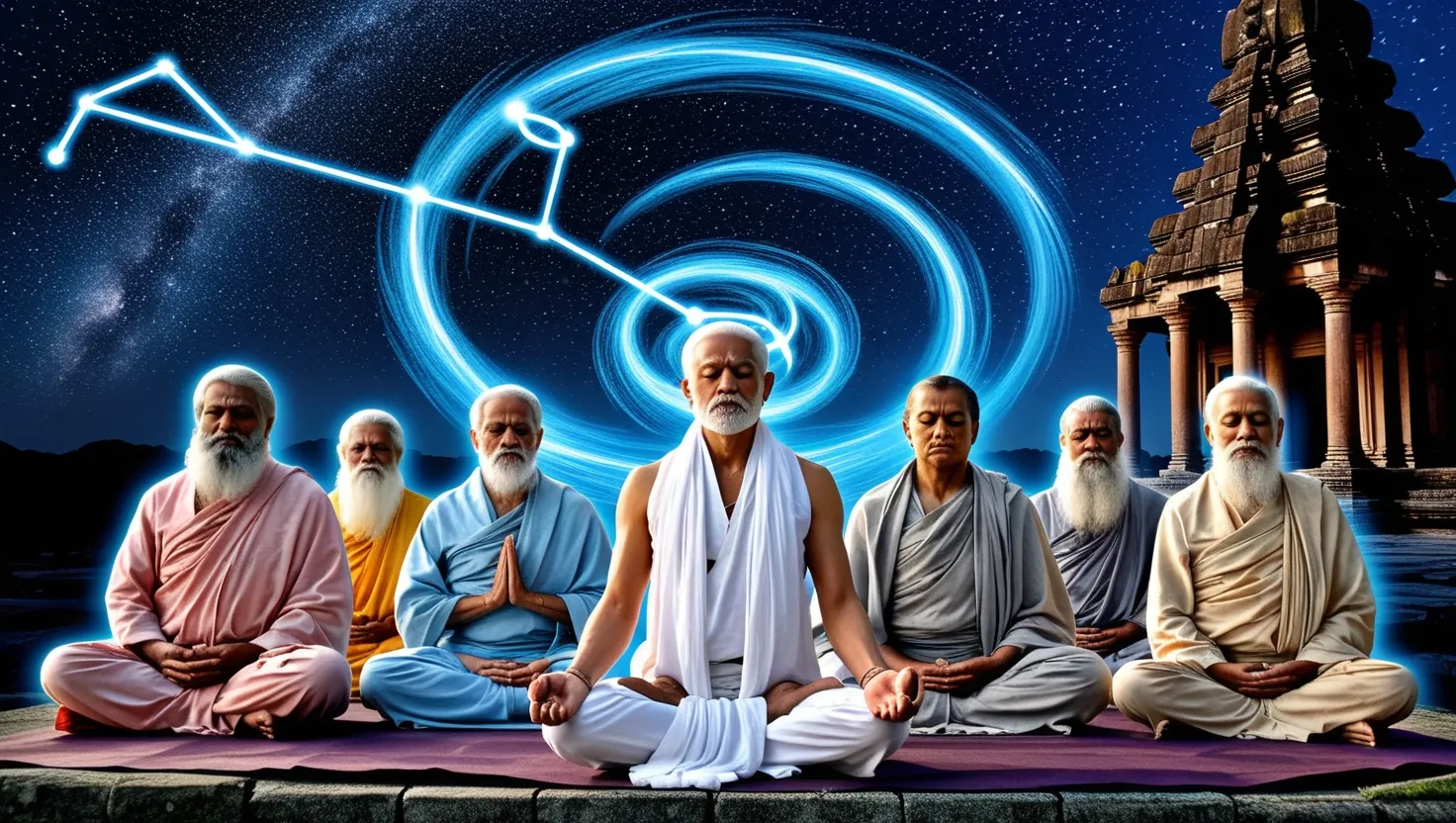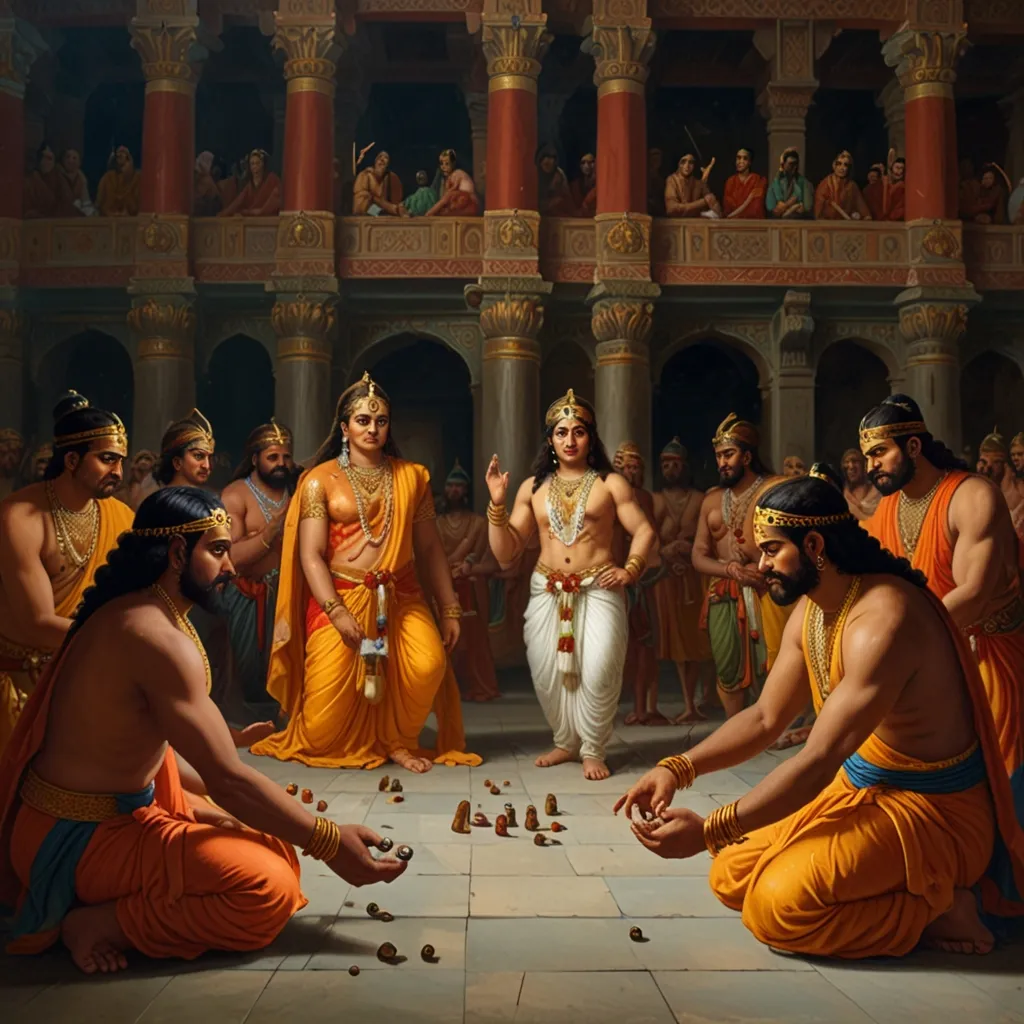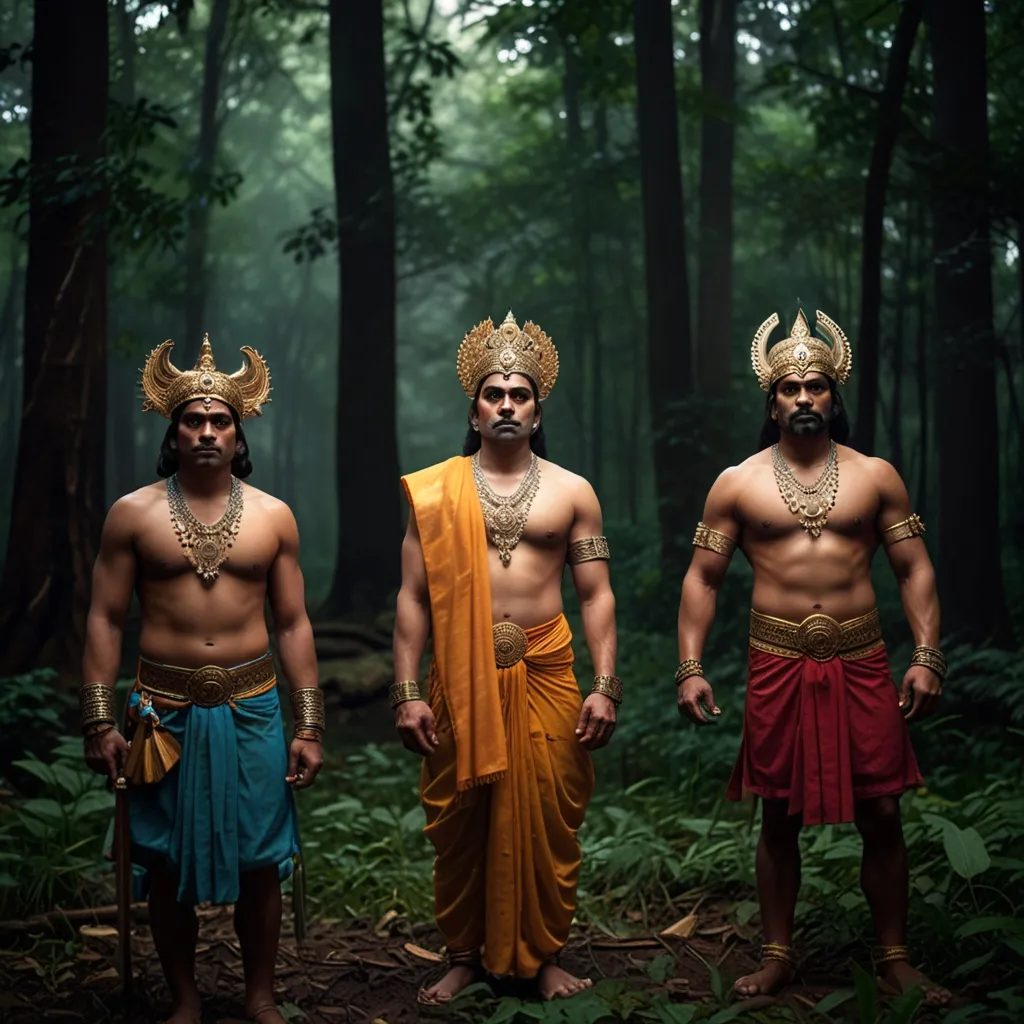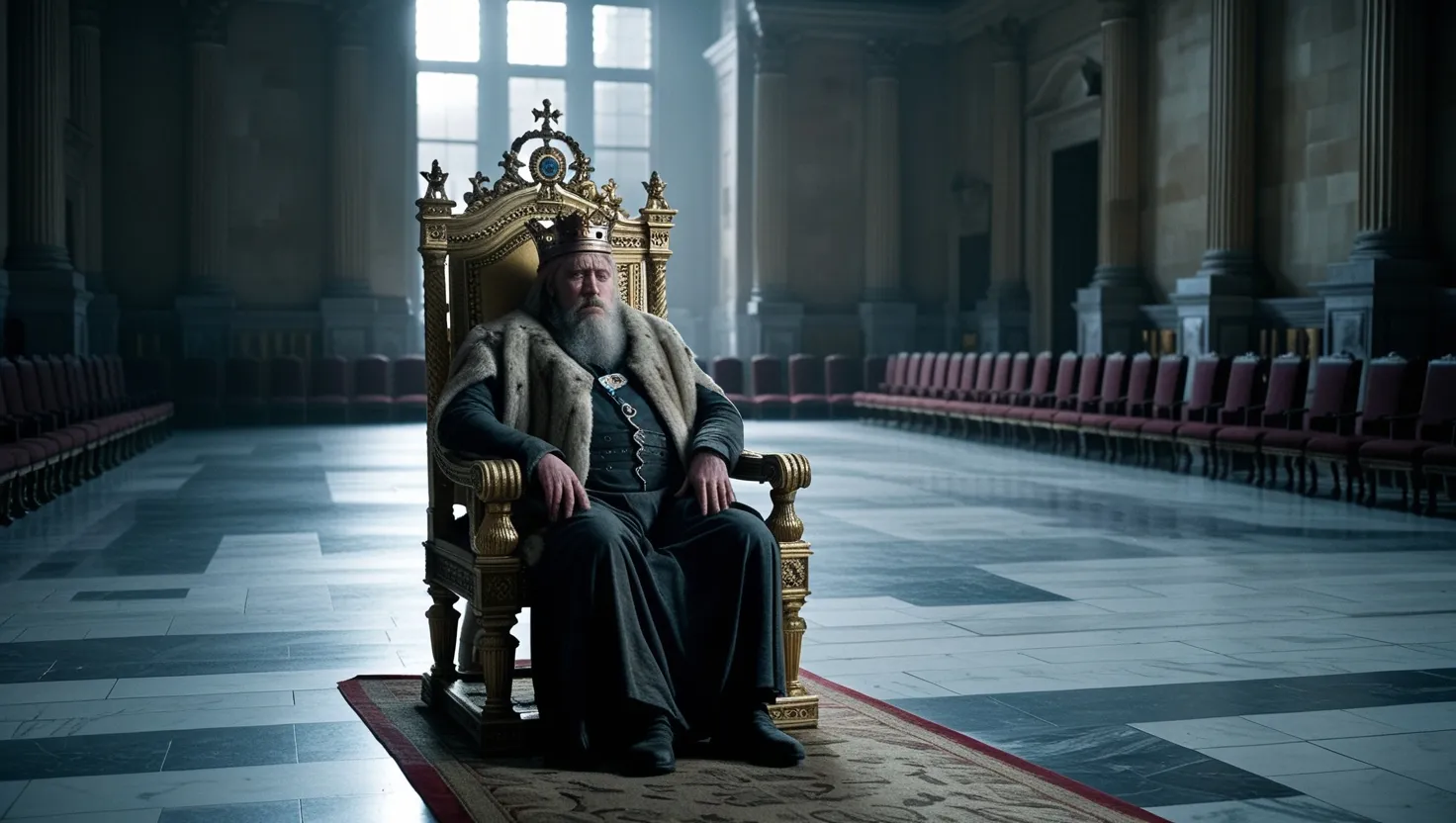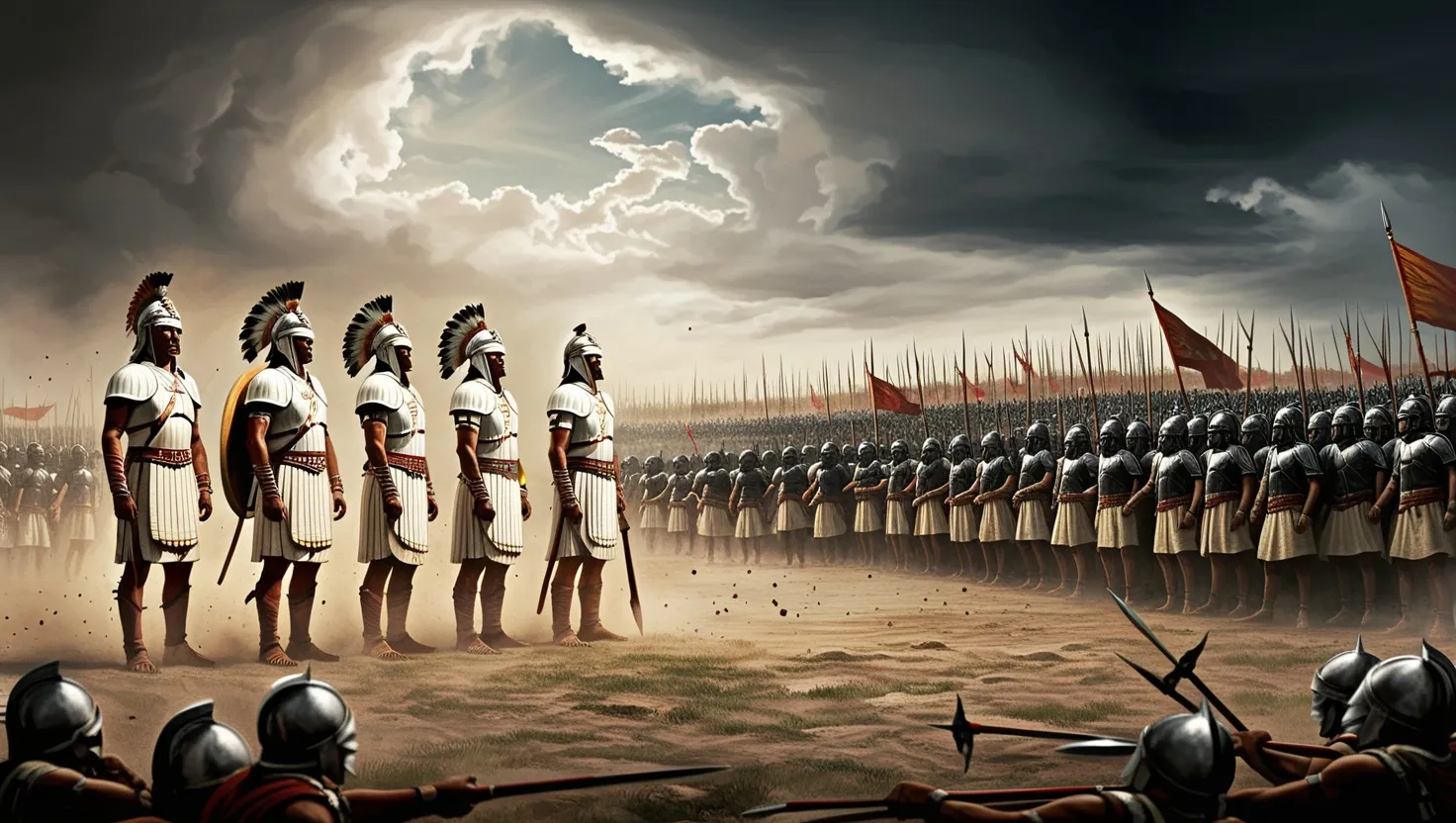What would history look like if one furious man had said “enough,” or if a council of kings had dared to question tradition, or if the world’s greatest warrior had chosen his birthright over his friend? The Mahabharata often presents the Kurukshetra war as written in the stars, yet as I read and reflect, I’m struck by how precarious that road to bloodshed really was. The ancient story feels less like fate and more like a tangled web of decisions, each strand trembling with the possibility of peace.
I picture Krishna, not as the god we often imagine, but as a thoughtful statesman, sweating under the silent gaze of Hastinapura’s court. He didn’t arrive with thunder; he brought a question: Will you accept five villages, just five, and avert war? The air must have been thick with hope and dread. Dhritarashtra, the blind king, quivered, seeing – perhaps for the first time – the edge of disaster. Karna, Duryodhana’s rock, found himself pressing for peace, no matter how quietly. The famous refusal of Duryodhana isn’t just stubbornness; it’s the echo of private fears and jealousies echoing into policy. Sometimes, entire civilizations shatter because one person cannot swallow pride.
But let’s pause and ask: what if Duryodhana had relented? Would he have been remembered as weak, or as a king who saved his people from ruin? In every high-stakes negotiation, there’s that invisible moment when saying yes or no changes the world—almost always for reasons more personal than logical. We often imagine great conflicts as battles between ideas, but here it was a crisis of ego, of who could bow first.
Karna embodies the complexity of these “almosts.” When Kunti revealed her secret—that he was her firstborn and true brother to those he’d sworn to destroy—he faced a choice deeper than blood or loyalty. Karna did not switch sides, but he made a promise that reshaped the war’s calculus: only Arjuna would face his wrath. Imagine if Karna had come over to the Pandavas. Duryodhana would have lost his moral anchor and fiercest champion. But Karna’s concession, even as he remained an enemy, was a thread tugging subtly away from total calamity, a gesture suggesting that war need not consume all.
How many of us carry hidden truths that, once told, change everything—and still, we refuse to budge because doing so would mean redefining who we are? Karna’s near-defection isn’t just about loyalty; it’s about the deep discomfort of betraying either your history or your potential.
The infamous dice game, so often dissected for its tragedy, was itself a fragile turning point. Yudhishthira knew the odds weren’t in his favor—he doubted, hesitated, felt the trap closing. The crack of dice against wood was the sound of a king ignoring every warning bell out of misplaced pride. He could have said no. The game itself was not law, but custom. Social pressure, expectations, and a gambler’s hope twisted his resolve. How many disasters start this way: not with malice, but with the slow grind of not wanting to be the one who says “stop”? It’s the inertia of custom that often proves most dangerous.
Imagine a world where Yudhishthira stood up, refused the game, and walked away. Would his honor have suffered? Or would his principled stand have forced others to question Shakuni’s schemes? Sometimes, true leadership is quiet resistance to group folly.
In the heart of the hall, as Draupadi’s fate hung in the balance, another chance for peace flickered. Draupadi’s strength is legendary, but it was her restraint and pointed legal question to the elders that held power. She turned the spotlight on Bhishma, Drona, and the entire court: was she truly lost, or was this a crime unfolding in front of their eyes? The elders wavered, torn between dharma and loyalty, justice and fear. Bhishma, that grand old man, hesitated—not from ignorance, but paralysis. If even one leader had voiced outrage, the entire direction of the epic could have changed. But silence, I realize, is rarely neutral; it is a choice with consequences.
How often, in our own lives, does a wrong continue because those best placed to protest hesitate, torn between rules and right? Draupadi’s restraint, more than her rage, was a test for the entire kingdom—a test failed, with costs reverberating for generations.
“Whenever you are in doubt, or when the self becomes too much with you, apply the following test. Recall the face of the poorest and the weakest man whom you may have seen, and ask yourself if the step you contemplate is going to be of any use to him.” – Mahatma Gandhi
All along, Bhishma, the invincible patriarch, held extraordinary authority. He could have called out the madness of the dice game at any moment. What if he had declared Draupadi’s wager unlawful? His word, spoken sharply, would have carried the force of law. Instead, his internal struggle—duty to the throne or to truth—froze him. History rarely punishes those who err in action as harshly as those who err by inaction. In the end, Bhishma’s silence wasn’t just personal hesitation; it was collective failure. Generations later, we wonder: when faced with impossible choices, is doing nothing ever justified?
The Mahabharata’s “near misses” force me to see destiny as something far less certain than prophecy suggests. The gods do not dictate every detail. These moments reveal that war was not just a product of cosmic will, but the sum of decisions made in the heat of doubt and pain. Individually insignificant actions—one refusal, one question, one moment’s courage—could have changed the current of history.
It’s tempting to believe that great conflicts are decided only by grand themes, but this epic reminds us: history hangs on ordinary people making extraordinary decisions at precisely the wrong or right time. Destiny is, perhaps, human will written on a scale so large that we call it fate because it terrifies us to think how much depends on the next word, the next silence, the next breaking of tradition.
Do I see echoes of this in the world around me? Absolutely. We face crossroads every day, and not always in the halls of power. Sometimes in a boardroom, a family dispute, a quiet vote. The lesson of the Mahabharata is not that war was inevitable, but that peace was always possible—in the pause before the dice were thrown, in the hush before a king answers, in the silence before an old man speaks.
“Even kings and emperors, with mountains of property and armies of thousands, were not equal to an ant filled with the love of God.” – Guru Nanak
Why does this matter now, thousands of years after the dust of Kurukshetra settled? Because the same fragile moments exist today, hidden in our routines, waiting for someone to act with courage or clarity. The Mahabharata’s war could have been averted not by miracles, but by the refusal to let habit and fear dictate action. It’s a reminder that, as long as choice is possible, new endings are too.
So, let’s ask ourselves: When faced with our own “near misses,” do we act decisively, or let silence decide? Are we Duryodhana standing on pride, Bhishma paralyzed by duty, or Draupadi asking a question that shames a room into action? What moments in our lives teetered close to disaster and were pulled back—or pushed forward—by a single word, a single act?
The Mahabharata is not just an epic of war. It is an epic of all the wars that nearly weren’t, all the peace that was almost seized, and all the people who, for a second, held the world’s fate in their trembling hands. That’s the story I find most haunting—and most hopeful.
